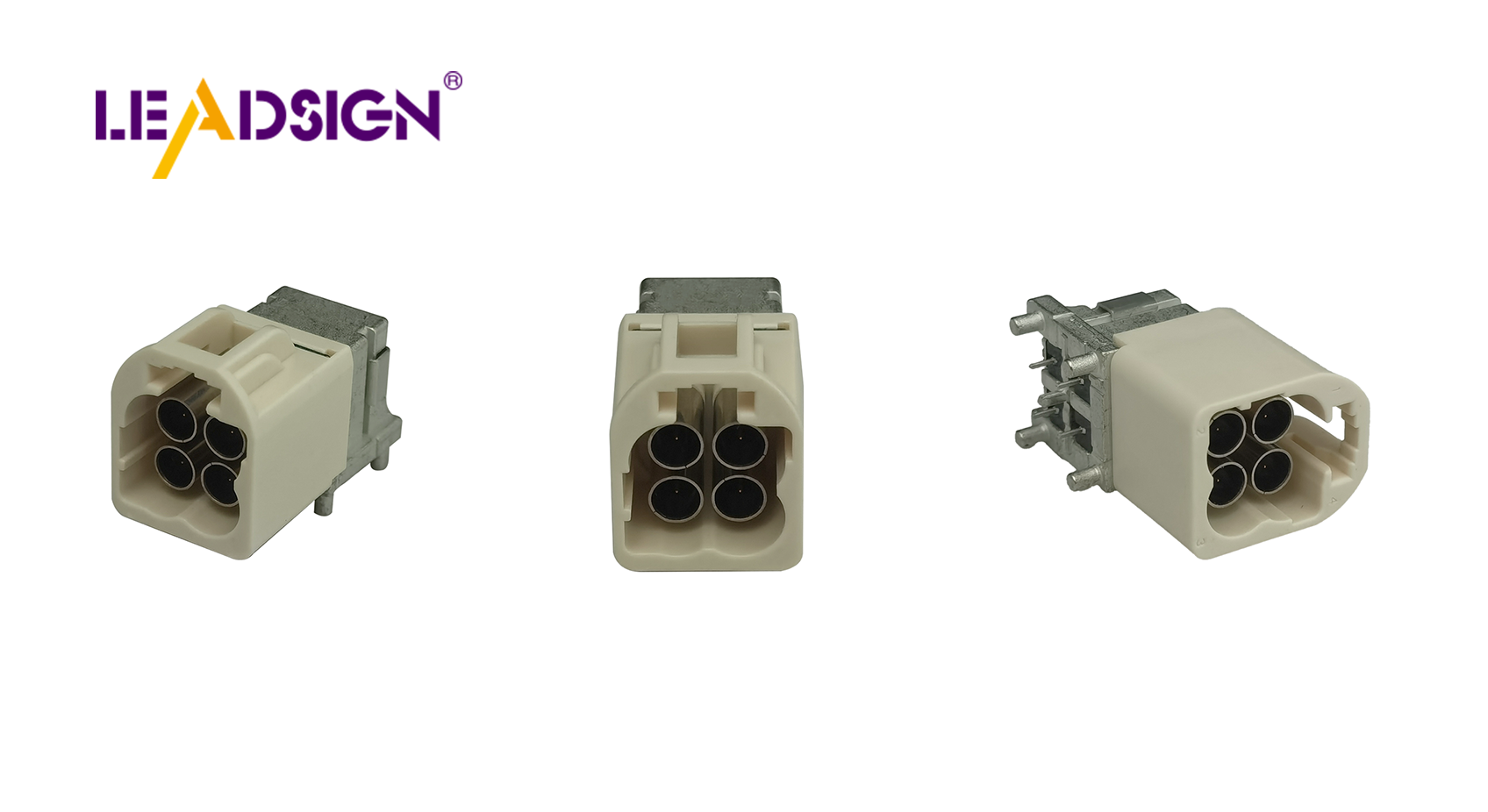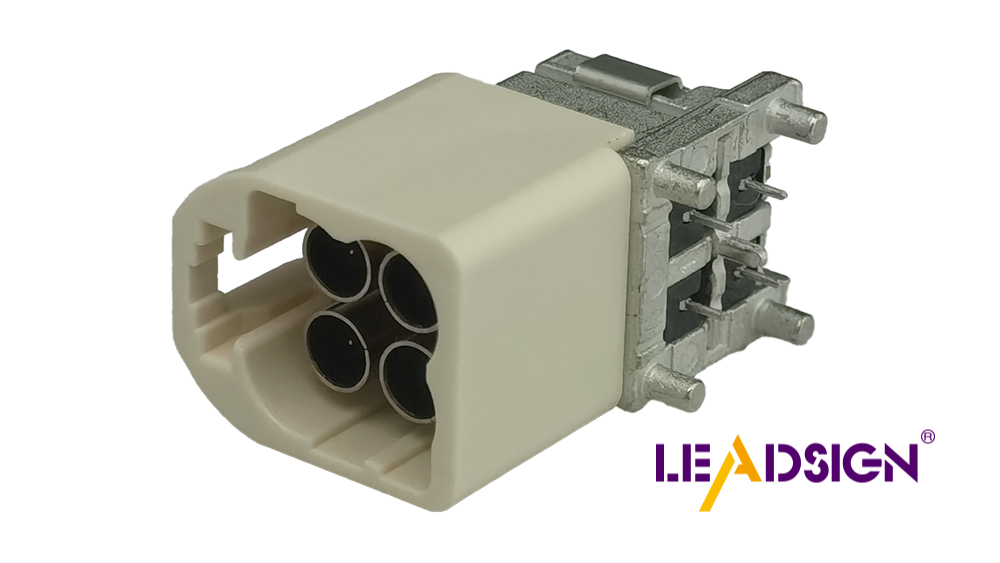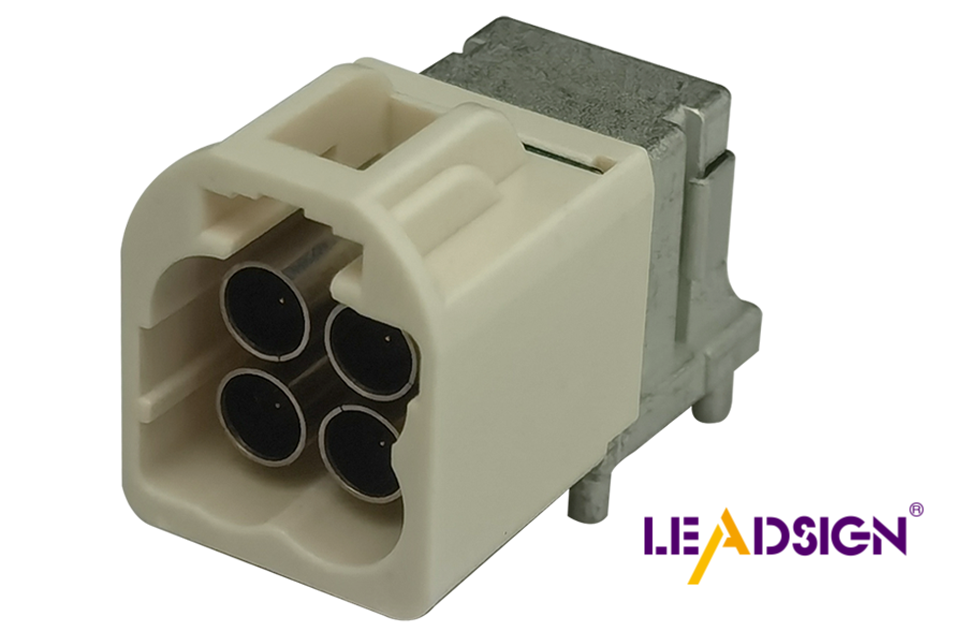Quick Tips for Identifying Automotive Electrical Connectors Types

Imagine you're working on your car, and suddenly, you're faced with a tangled mess of wires and connectors. Identifying the right automotive electrical connectors types becomes crucial. These connectors ensure the seamless operation of your vehicle's sophisticated systems. As vehicles become more advanced, the demand for high-performance connectors grows. They play a vital role in maintaining safety, comfort, and efficiency. Understanding these connectors not only helps in repairs but also ensures compliance with stringent safety regulations. So, knowing how to identify them can save you time and prevent costly mistakes.
Common Types of Automotive Electrical Connectors

Understanding the different automotive electrical connectors types is essential for anyone working with vehicle electronics. Each type serves a unique purpose and has distinct features that make identification easier.
Blade Connectors
Description and Uses
Blade connectors, often referred to as spade connectors, are among the most common automotive electrical connectors types. They feature a flat, blade-like metal piece that fits into a corresponding slot. You typically find these connectors in applications where quick disconnection is necessary, such as in car audio systems and lighting.
Identification Tips
To identify blade connectors, look for their characteristic flat metal blade. They usually come in various sizes, so measuring the width can help you determine the correct type. Additionally, the color of the insulation often indicates the wire gauge size, making it easier to match with the appropriate wire.
Pin Connectors
Description and Uses
Pin connectors are another prevalent type in the automotive world. These connectors consist of one or more pins that fit into corresponding sockets. They are commonly used in engine control units and sensor connections due to their reliability and secure fit.
Identification Tips
When identifying pin connectors, count the number of pins, as this is a crucial characteristic. The shape and size of the connector housing also provide clues. Pay attention to any keyways or tabs that ensure proper alignment during connection.
Butt Connectors
Description and Uses
Butt connectors, also known as sleeve splices or butt splices, are used to join two wires end-to-end. They offer a secure connection, even in environments with vibration, making them ideal for automotive applications. These connectors are easy to install and provide a permanent solution for wire splicing.
Identification Tips
To identify butt connectors, look for a cylindrical shape with openings on both ends. They are typically color-coded to indicate the wire gauge size they accommodate. Ensure that the connector matches the wire gauge for a secure fit. The simplicity of their design makes them easy to recognize among other automotive electrical connectors types.
Challenges in Identifying Automotive Electrical Connectors Types
Identifying automotive electrical connectors types can be tricky. You might encounter several challenges that make the process confusing. Understanding these challenges helps you navigate them more effectively.
Similarities Between Different Types
Common Confusions
Many automotive electrical connectors types look similar. This similarity often leads to confusion. For instance, blade connectors and pin connectors might appear alike at first glance. Both have metal components that fit into slots or sockets. However, their applications and designs differ significantly. Such similarities can cause you to misidentify connectors, leading to incorrect installations or repairs.
How to Differentiate
To differentiate between similar connectors, focus on specific characteristics. Count the number of pins or blades. Examine the shape and size of the connector housing. Look for unique features like keyways or tabs. These details help you distinguish one type from another. By paying attention to these aspects, you can accurately identify the correct automotive electrical connectors types.
Wear and Tear
Impact on Identification
Wear and tear can complicate the identification of automotive electrical connectors types. Over time, connectors may become worn, discolored, or damaged. This deterioration makes it difficult to recognize their original form. You might struggle to match them with new connectors, risking improper connections.
Solutions to Overcome Challenges
To overcome wear and tear challenges, use a systematic approach. First, clean the connectors to remove dirt and grime. This cleaning can reveal hidden features. Next, compare the worn connector with a new one, if available. Use tools like magnifying glasses to inspect small details. Additionally, consider using technology, such as apps or databases, that provide images and descriptions of various automotive electrical connectors types. These resources can assist you in making accurate identifications despite wear and tear.
Solutions for Easy Identification

Identifying automotive electrical connectors types can be daunting, but technology offers innovative solutions to simplify this task. By leveraging modern tools, you can enhance your ability to accurately identify connectors, saving time and reducing errors.
Use of Technology
Introduction to Pigtail Instant Match Smart App
The Pigtail Instant Match Smart App revolutionizes how you identify automotive electrical connectors types. This app uses advanced algorithms to match connectors with their specifications quickly. You simply take a photo of the connector, and the app provides detailed information, including type, size, and compatible applications. This tool is invaluable for both professionals and DIY enthusiasts, ensuring you make the right connections every time.
Features and Benefits
The Pigtail Instant Match Smart App offers several features that make it a must-have tool:
Instant Identification: Quickly identifies various automotive electrical connectors types, reducing guesswork.
Comprehensive Database: Access to an extensive library of connectors, ensuring you find the right match.
User-Friendly Interface: Easy to navigate, making it accessible for users of all skill levels.
Real-Time Updates: Regular updates ensure the app stays current with the latest connector types and technologies.
These features not only streamline the identification process but also enhance your understanding of automotive electrical connectors types, making repairs and installations more efficient.
Real-World Example
Problem Faced
Imagine you're working on a vehicle's infotainment system, and you encounter a connector that seems unfamiliar. Traditional methods of identification might involve trial and error, leading to potential mistakes and wasted time. This scenario highlights the challenges faced when identifying automotive electrical connectors types without the right tools.
How the App Provides a Solution
With the Pigtail Instant Match Smart App, you can overcome these challenges effortlessly. By photographing the connector, the app instantly provides you with its type and specifications. This real-time solution eliminates uncertainty and ensures you use the correct connector, preventing costly errors and enhancing the reliability of your work.
Experts in the Automotive Industry emphasize the transformative role of AI in optimizing connector performance and efficiency. As vehicles become more advanced, tools like the Pigtail Instant Match Smart App become essential for maintaining seamless communication between components.
By integrating technology into your workflow, you can confidently navigate the complexities of automotive electrical connectors types, ensuring precision and efficiency in every task.
Meet the visionary behind the Pigtail Instant Match Smart App, a tool designed to revolutionize how you identify automotive electrical connectors. Accurate identification of connectors is crucial for maintaining your vehicle's performance and safety. By using this app, you can ensure precise connections, saving time and avoiding costly errors. Embrace technology and enhance your automotive repair skills with this innovative solution.
See Also
Navigating Ford Fakra Connections
Fundamentals of HSD Connections in Auto Sector
Significance of FAKRA Connections in Auto Uses

